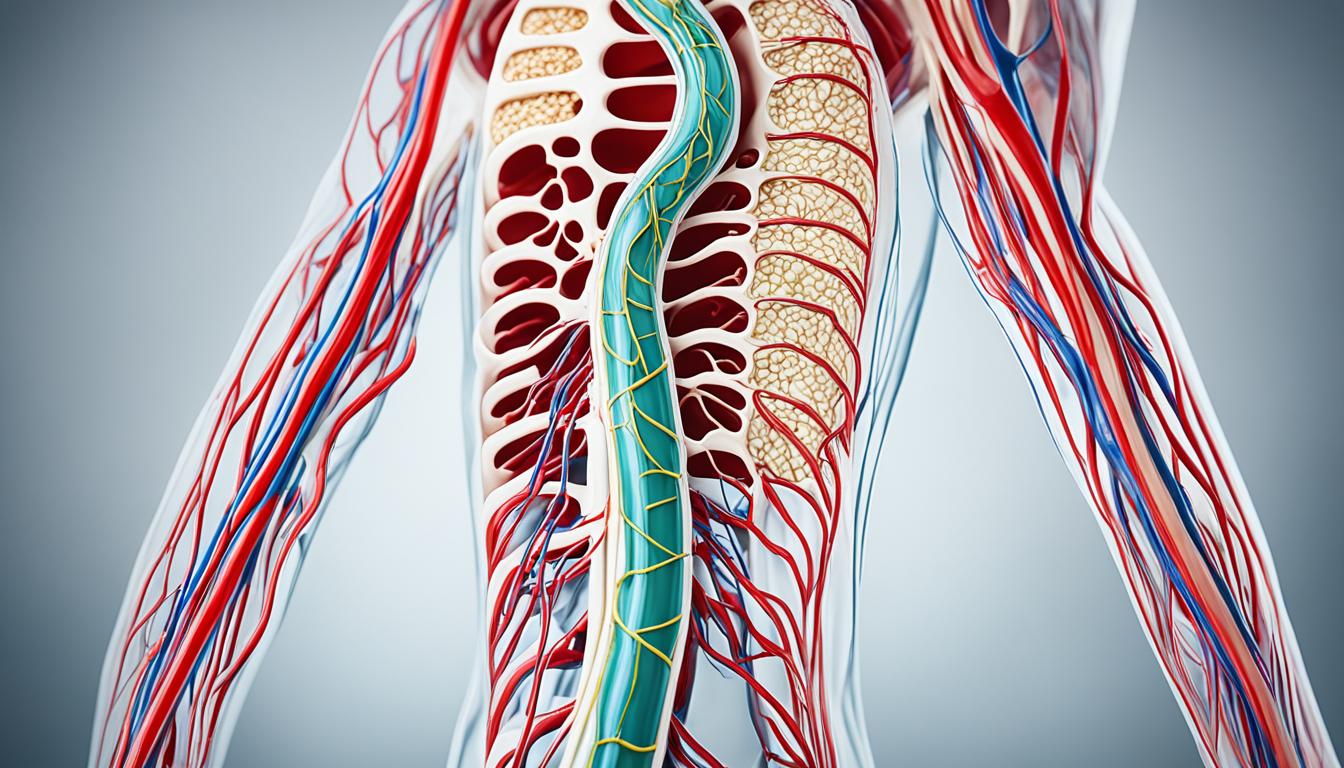The median arcuate ligament (MAL) syndrome, known also as celiac artery compression syndrome, is rare. It affects the celiac artery, leading to discomfort for those diagnosed. This condition is caused by the compression of the celiac artery by the median arcuate ligament.
People with MALS might lose weight and experience stomach pain after eating. They could also feel sick and throw up. These issues happen because the main stomach blood supply gets squeezed off and doesn’t always get enough blood.
Doctors check for MALS using several imaging tests like catheter angiography. These tests help them see the artery pressure and make a diagnosis.
For treating MALS, doctors first try lifestyle changes to see if symptoms get better. They might suggest surgery if these changes don’t help. A common surgery involves cutting the ligament that’s pressing on the artery. More recently, using stem cell therapy is showing good results in easing symptoms and improving patients’ lives.
Key Takeaways:
- MALS is a rare syndrome that squeezes the celiac artery.
- Its symptoms include losing weight and severe stomach pain.
- The exact cause of MALS is not clear but thought to be from a strange band in the diaphragm.
- Doctors can find MALS by using tests like artery imaging.
- Treatments for MALS involve lifestyle changes, surgery, and stem cell therapy.
Symptoms and Diagnosis of MALS
People with MALS face troublesome symptoms that lower their life quality. Symptoms consist of post-eating stomach pain, losing weight, throwing up, and feeling sick. These issues happen because the artery that feeds the stomach gets squeezed, leading to occasional cuts in blood flow.
Doctors use different tests to check for MALS. These include putting a thin tube with a camera into a blood vessel to watch or using sound waves to see the blood flow. The best test depends on the situation and the doctor’s knowledge. These tests confirm if the stomach artery is compressed. So, seeing a doctor who knows a lot about MALS is key for getting the right diagnosis and treatment plan.
Consulting MALS Specialists for Accurate Diagnosis
If someone thinks they have MALS, it’s vital to see a specialist. These doctors really understand MALS and know the best ways to find and treat it.
Working with an MALS expert brings many benefits. They know the newest MALS info and how to best treat it. They will make a treatment plan that fits just right.
Getting the right diagnosis from an expert is the best start for dealing with MALS. They will help you understand your situation better, find the right treatments, and get better.
Treatment and Management of MALS
There are many ways to treat MALS and manage its effects. The first treatment step is often making changes in your lifestyle. This can mean eating differently and losing weight. Such steps have been proven to make symptoms better and help you feel healthier.
If changing how you live doesn’t help enough, surgery may be the next step. Doctors often suggest a procedure called laparoscopic division of the median arcuate ligament for MALS. It aims to fix the main problem by letting the celiac artery move freely again.
Another approach that’s becoming popular is using stem cells. This treatment has offered hope to many people by easing their symptoms and improving how they live. Stem cells can even help repair damaged tissues, which makes this method very exciting for the future of MALS care.
Seeing a specialist who knows a lot about MALS is very important. These experts can offer treatment plans that are just right for you. Working with a MALS specialist increases your chances of getting well and managing your health better.

